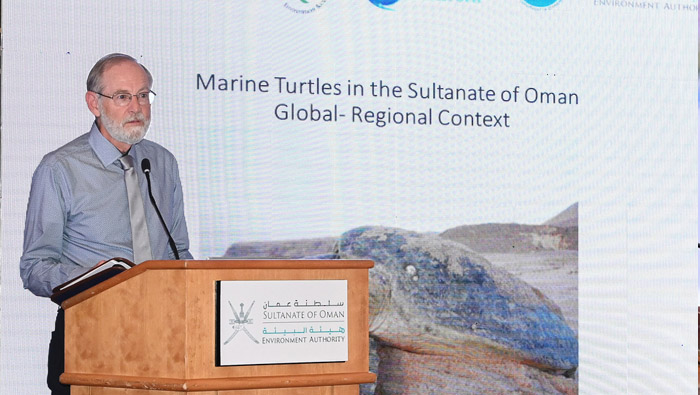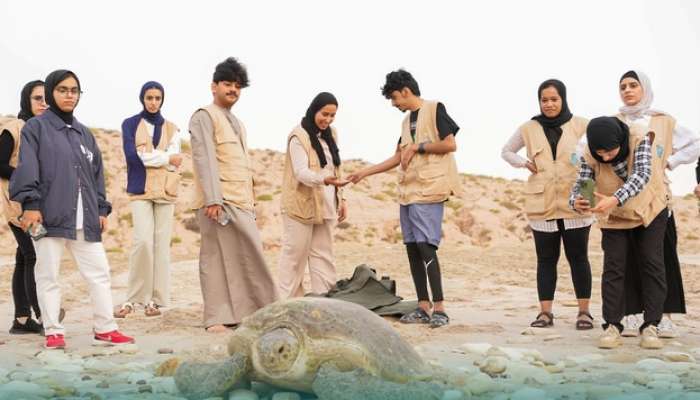

Muscat: The "Turtle Commandos" programme for the protection, control and monitoring of sea turtles, which is supervised by the Environment Authority, continues its third phase with the participation of local and international volunteers. Its activities will continue until the end of December.
Manar bint Abdullah Al Riyami, head of the "Turtle Commando" programme, said that the idea came about due to the unorganised increase in the number of visitors in sea turtle reserves, which caused inconvenience to the turtles and a decrease in their numbers. The solution was to use volunteers to support and activate the role of oversight, develop environmental responsibility, encourage visitors and activate their roles to protect the marine environment."
Al Riyami added that the programme aims to enhance community members' awareness of the importance of sea turtles, encourage young people to volunteer in the environment, and clean the beaches where turtles nest from plastic and fishing waste. In addition to working to find solutions to a number of challenges and problems faced by these turtles through environmental projects that contribute to the process of reproduction and the preservation of the environment.
Al Riyami pointed out that the activities of the programme in its third edition began in June through three sites: the Turtle Reserve in Ras Al Hadd, Masirah Island, and Daymaniyat Island. The programme focuses on attracting volunteers from inside and outside the Sultanate of Oman to experience turtle observation and educate them on the importance of taking responsibility for protecting the marine environment.
The head of the "Turtle Commandos" programme explained that the most prominent challenges facing sea turtle reserves before the implementation of this programme are the presence of human disturbances in nesting sites without adhering to the laws, and the use of artificial lighting that affects the direction of young turtles to the sea. In addition to sabotaging turtle nests, whether by driving on them with cars or digging up nests, plastic pollution, oil or chemical leaks, as well as population encroachment on turtle nesting sites or construction in nesting sites.
The programme was launched in 2021, and its tasks are to monitor, protect and work on the environmental conservation of turtles.